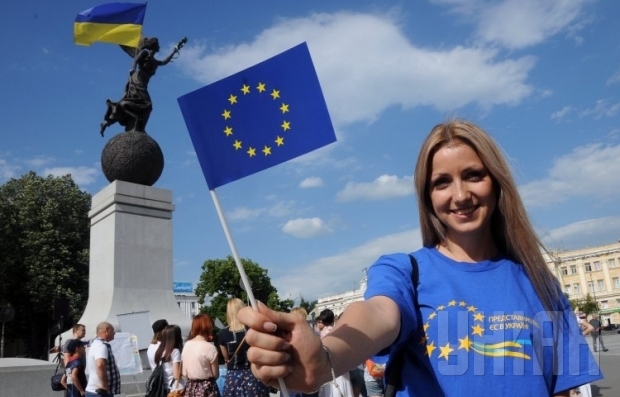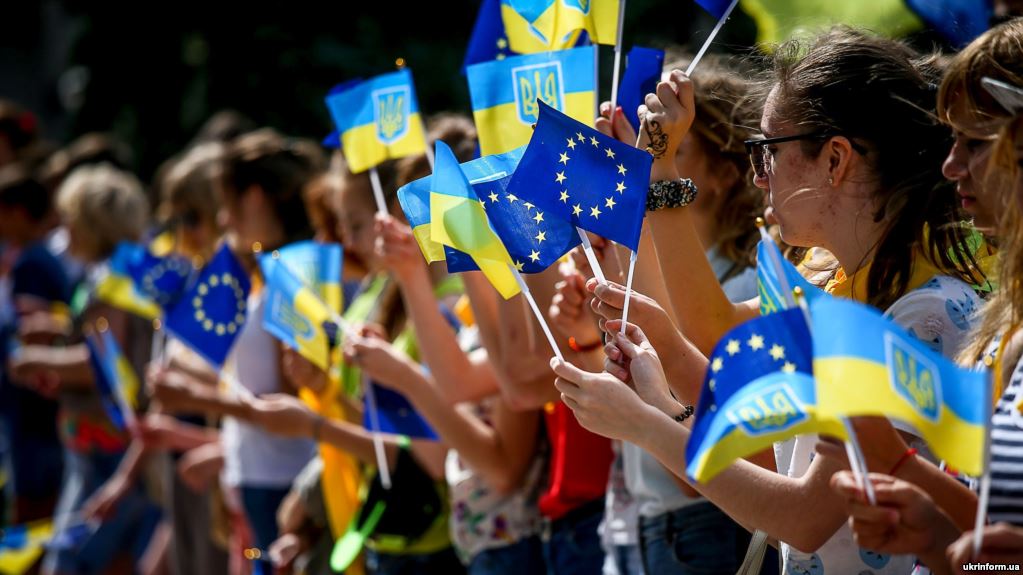The fate of the Association Agreement between the EU and Ukraine is set to be challenged on April 6 at the referendum in the Netherlands, the initiation of which raises issues. Looking at the text of the Agreement a careful reader will fail to see anything in it to fuel migration concerns the Dutch are believed to be preoccupied with. What triggered the event and how the Ukrainian government should go about it ?
Background to the Dutch skepticism
As an Association Agreement between the EU and Ukraine awaits the outcome of the referendum in the Netherlands, one can be excused for wondering whether the Agreement as such is capable of justifying the Dutch skepticism. It is fair to say at the outset that the Dutch fear of the approval of the Agreement lies in an understanding that the latter may be a disguised entry ticket for Ukraine to join the EU. Certainly, this is not something the Dutch people are eager to accept. The last enlargement of the EU did not only expand the territory of the Union but also resulted in a massive inflow of migrants seeking to take advantage of the better quality of life the Western part of the EU could offer.
What people in the West are worrying about cannot simply be reduced to the threat of terrorism or sanitary concerns but is to be viewed in a rather economic context. The latter point is exemplified by the wording of the EU legislation which makes it clear that even Union nationals are welcome in another Member States only as long as they do not become an unreasonable burden on the social assistance system of the host Member State.
As a starting point for analyzing the Dutch skepticism, one should therefore bear in mind that largely it is the fear that the EU-Ukraine Association Agreement may give legal grounds for Ukrainians to travel to Europe without or with limited restrictions or take up employment over there that is to blame for the Dutch calling on for the referendum to take place. Interestingly enough, the EU-Ukraine Association Agreement does not appear to be capable of fueling those concerns, a careful reading of its text suggests.
EU-Ukraine Association Agreement has little to do with abolition of visa requirements for Ukrainians
To begin with, the EU-Ukraine Association Agreement does not provide for the abolition of a visa requirement to citizens of Ukraine, in itself. Whether the Agreement is a significant move towards visa-free regime is arguable either. According to the Agreement steps taken to that end shall be gradual and subject to the conditions of well-management and movement security as provided by the Action Plan on Visa Liberalization. Thus far much work has been done as far as the Action Plan is concerned, but people in the Netherlands have no reasonable ground to give credit for this progress solely to the Association Agreement. In fact the process of visa facilitation is separated from the obligations under the Association Agreement. Moreover, the Dutch can rest assured that neither the Agreement nor the Plan are capable of binding the EU to accord the visa-free regime to Ukraine.
Ukrainian workers are no threat to the Netherlands economy either
As far as mobility of workers is concerned, the Agreement again stipulates no additional rights for workers from Ukraine. What it does is merely states that the improvement in this regard should, if possible, be aimed for. But even this requires that the situation on the labor market of the Member State concerned is taken into account, as well as compliance with the EU and that Member State’s legislation. In practice, the implication of this modest provision will likely be that workers from Ukraine will continue to enjoy as much rights as they do under the current regime.
There is one far-reaching provision in the Agreement, it is to be admitted. According to the Article 17 thereof, nationals of Ukraine legally employed in one of the EU states shall not be discriminated against when it comes to working conditions, remuneration or dismissal. This language indeed is a move forward compared to what has been agreed between the EU and Ukraine before. The PCA between the EU and Ukraine did not consider non-discrimination as an obligation.
The Dutch, however, should not be overly concerned as regards this provision. The possibility for Ukrainians of successfully relying on the provision before a national or European court is questioned by another legal measure, namely the Council Decision on the signing of the EU-Ukraine Association Agreement. The Decision provides that no rights or obligations set out in the Association Agreement enjoy direct effect. While in a situation like the one at issue the ECJ has already given effect to the non-discrimination provision, the room for the EU to argue otherwise is nevertheless present.
The roots of the Dutch initiative to have a referendum and actions on the part of the Ukrainian government
If one sets aside above mentioned Article 17, the Association Agreement does not seem to be as far-reaching Agreement as people in the Netherlands afraid it is. Compared to other arrangements the EU has entered into, the Association Agreement, for example, is silent on the rights of family members of the worker legally employed in the EU.
One cannot reasonably think of the Agreement as granting Ukrainians rights similar to those the migrants from Poland or Romania enjoyed when they flooded the Western part of the EU. But, If an analysis of the EU-Ukraine Association Agreement is not capable of providing explanation as to why did the Dutch decide to have their voice heard, the latter is to be sought elsewhere.
It has already been suggested that the referendum was triggered thanks to the interference of Russia. Those who argue so believe the Dutch were subject to influence on the part of Russian interest groups. Another explanation put forward was that the Dutch people initiated a referendum merely because the law enabling them to do so was introduced.
Either way, what is relevant is what should the Ukrainian government have done or could still do to make the Dutch approve the Agreement? There is no more useful promotion tool in the hands of the Ukrainian government than the very text of the Agreement.
To the surprise of the Dutch, the Agreement is not as generous towards Ukrainians as they imagine it to be. Senior officials from Ukraine are often seen in the Hague these days, but their efforts to convince the Dutch have not been very fruitful to this day. Their message to the Netherlands is largely focused on the trade benefits the Dutch could gain in case the Agreement goes ahead, but social concerns of the locals such as rights of the Ukrainian workers under the Agreement are not well addressed.









